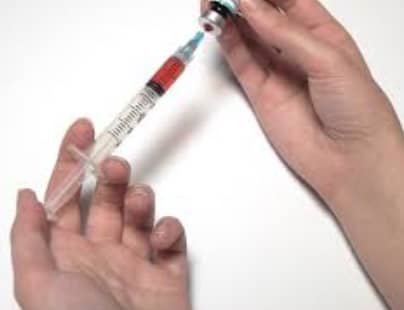The Truth About Antibiotics: Three Things Every ER Nurse Wants You to Know
As a nurse I have strong opinions about antibiotic use, or more specifically, antibiotic abuse. Some are evidence based, but most of them are experience driven. If you’ve ever set foot in my ER with a belly ache or an ear infection, you’ve received my Antibiotic Lecture 101. For the rest of you, let me save you the pain of a rabid infection. If you don’t want to star in the next episode of Germs Gone Wild, take heed of these three things every ER nurse wants you to know about antibiotics use.
Number One Rule: Take Them Until They’re Gone
I hope you feel better after a few days; that’s awesome. Maybe you’re being frugal, or maybe you’re being cautious, but you’ve decided to save your antibiotics. No. No, no, no. Take your antibiotics until they’re gone! Think with me about why some antibiotics are ten-day doses while others are three. There is a reason you get “extra” pills, and it’s not for conservation or in an abundance of caution. It’s because this drug works in a particular way. Efficacy, while not a layman’s term, is a real thing. It means “this works, and it works this way.” I’ve had people come to me for a urinary track infection and show up two weeks later with a full-blown kidney infection leading to hospitalization and IV antibiotics Why? Because they gave their cousin the rest of their antibiotics. While there are reports that claim you can safely take less than your dose, this writer’s real world experience begs the question, is it worth it to gamble with your health and incur a higher medical bill?
Number Two Rule: See Rule Number One
I can’t tell you how many times febrile people have told me “I had some leftover antibiotics from my tooth infection, so I am taking those but I’m not getting better.” News flash: penicillin isn’t a first line treatment for colitis. Similarly, if you’re prescribed an antibiotic for a urinary tract infection, it will not treat your upper respiratory infection. Different antibiotics treat different infections because they work in different ways. If you don’t know the difference, you don’t need to be playing Frugal Pharmacist. If you’ve made the choice to trust your doctor to prescribe a treatment, please complete it.
Number Three Rule: See Rule Number One
If you only take some of your antibiotics, you have only treated some of your germs. If you have a playground of bullies and you go in to fight them one by one, you’re likely to knock out the weakest ones first, leaving the stronger ones to take over the playground. Now imagine that those bullies, with uncontested real estate and food stores, can also freely multiply under ideal circumstance. You now have a playground of super bullies, and those partial and ineffective doses taken two weeks earlier are powerless. Your super bullies now know the enemy. They have survived the first onslaught and have evolved to resistance level efficiency. This is, by the way, how super germs were born.
Regardless of your feelings about medications and the pharmaceutical industry, please consider this: if you’ve chosen to take antibiotics, take them responsibly. Understand that the evidence is conflicting, but the nurses in the trenches have seen the results of antibiotic abuse more than not. Experience begs you to just finish your pills, and if you chose not to, consult with your doctor to make sure your decision doesn’t hinder your healing.



